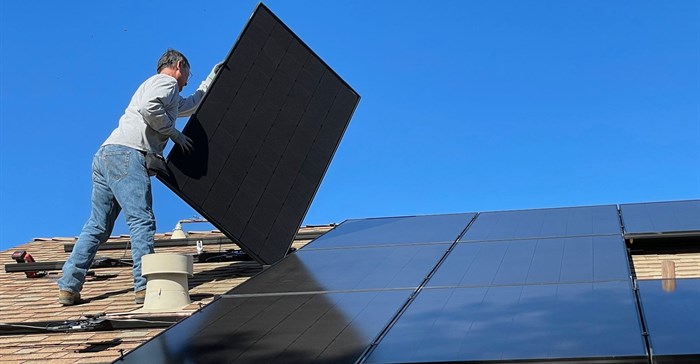
Top stories






More news


Marketing & Media
Ads are coming to AI. Does that really have to be such a bad thing?














“This incident is the latest of such fires being caused by alternative energy installations, as businesses and residents battle to mitigate the effects of large-scale rolling blackouts,” said CoCT mayoral committee member for safety and security, JP Smith, in a media statement.

Where only businesses that could afford it opted for alternative power before, all businesses now need an alternative. Businesses that are too large for the plug-and-play inverter option have larger power requirements that need additional financing, says Eli Michal, CEO of fintech lender Payabill.
Payabill was founded to assist businesses that don’t have the funds today to buy stock from wholesalers, to help them pay immediately.
“We settle the account with the supplier for goods without taking money out of a company's cash flow. The company then installs or resells stock and, in this way, has extended terms to repay. It enables companies to smooth out their cash flow and earn more profit in the long run,” Michal says.
The ongoing blackouts have created new demand for this service, especially among installers, retailers and resellers that make use of trade financing with loans of up to R1m.
SMEs have also sought out new financing options as few can afford to install alternative power and pay cash for a completely professionally installed system. This means that they either buy equipment of poor quality or use cheap installers who are not qualified to sign off on an installation. Asset finance fills this gap by paying the installer on behalf of an SME, giving them time to pay off the expense.
Michal says the size of the business’ turnover does not have much to do with the size of the alternative power system needed. “You could have a business with a turnover of R15m per year that only needs a trolley inverter or you could have a business with a turnover of R3m that needs a much bigger setup because of its power requirements.”
Those that have low power requirements, such as a home office, most likely won’t need professional installers and are able to simply buy a lithium trolley inverter from a retailer which is appropriate for stage 6.
The cost varies between R10,000 to R20,000 for 750-1,500W for a plug-and-play solution. Michal warns against lead acid/gel batteries, which are cheaper than lithium batteries, but will not last during stage 6 load shedding.
Those with medium power needs typically include a small office environment, with three to five staff or a small shop. This small office would require power to run basics such as lights and laptops. “These businesses need a solid seven to eight hours of uninterrupted work.”
They need a 3kVA to 5kVA inverter with lithium batteries and automatic switchover at a cost of R30,000-R80,000. They can upgrade to solar in time which would offer a tax benefit and electricity savings.

Michal says the problems start when businesses’ power needs are bigger than this. They need between 5kVA to 12kVA and believe that they can set up a power solution by themselves. “Things start to get messy, because owners or managers find an inverter at half the price everyone else charges.
It has no warranty and the owner finds a friend who is not an electrician who starts messing around with the distribution board. It never ends well. We won’t fund this approach. We find the most risk in the system at the moment is where people try to cut costs by using cheap equipment and unqualified installers.”
He adds that Payabill can also connect SMEs with competent installers and solid suppliers. Financing alternative backup power does not show immediate cost savings, but it reduces load shedding anxiety and allows staff to perform optimally.
“If the business buys the right inverter, they could upgrade in time to solar panels that will give them more power and will result in savings and a tax benefit. Most businesses operate during the day when the sun shines so they can get the best from their solar panels.”
“Businesses are looking for simple and fast solutions and we allow them to own the equipment from day one, while they can pay off the short-term finance agreement from monthly cashflow without impeding their existing business,” Michal adds.